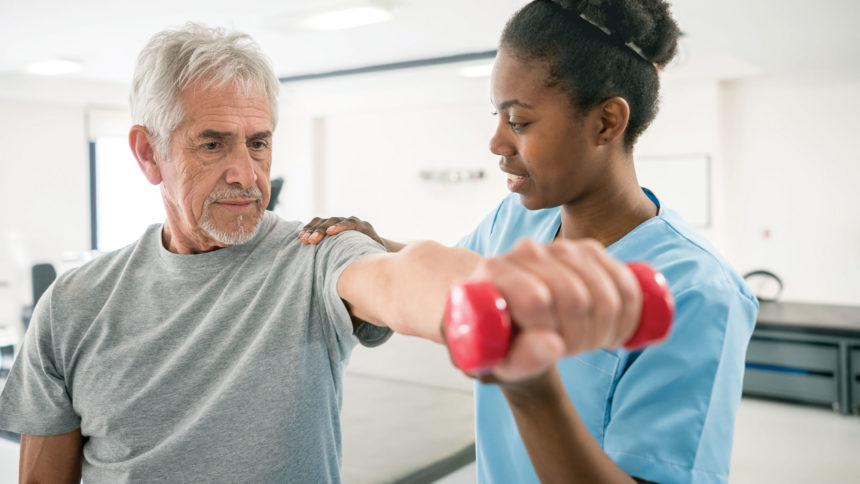
Older adults who maintain good grip strength and protect their mental abilities might be able to prevent or delay disability, according to the results of a newly published study in the Journal of the American Geriatrics Society.
Physical and mental training, according to the researchers, from China and Denmark, may be able to slow down physical decline and potentially prevent future problems such as the loss of independence, reduced quality of life, the likelihood of developing depression and dementia, and even death.
The investigators examined data from the SHARE study, in which 30,434 participants who were at least 50 years old provided information about their health, social and economic status as well as social and family networks. Specifically, the researchers looked at the survey participants’ answers to 10 questions about their ability to:
- Walk 328 feet;
- Sit for approximately 2 hours;
- Get up from a chair after sitting for a long time;
- Climb several flights of stairs without resting;
- Climb one flight of stairs without resting, stooping, kneeling or crouching;
- Reach or extend their arms above shoulder level;
- Pull or push large objects, such as a living room chair;
- Lift or carry weights over 10 pounds; and
- Pick up a small coin from a table.
The SHARE study collected answers to all 10 of the questions five different times.
The JAGS researchers examined the effects of grip strength and cognition and how they affected the participants over time.
Their findings, they said, “corroborated the idea that stronger baseline grip strength and better cognition predict slower increase in functional limitation in older adults. Grip strength and cognitive function could be considered as important predictors for the development of functional limitation in elderly.”

